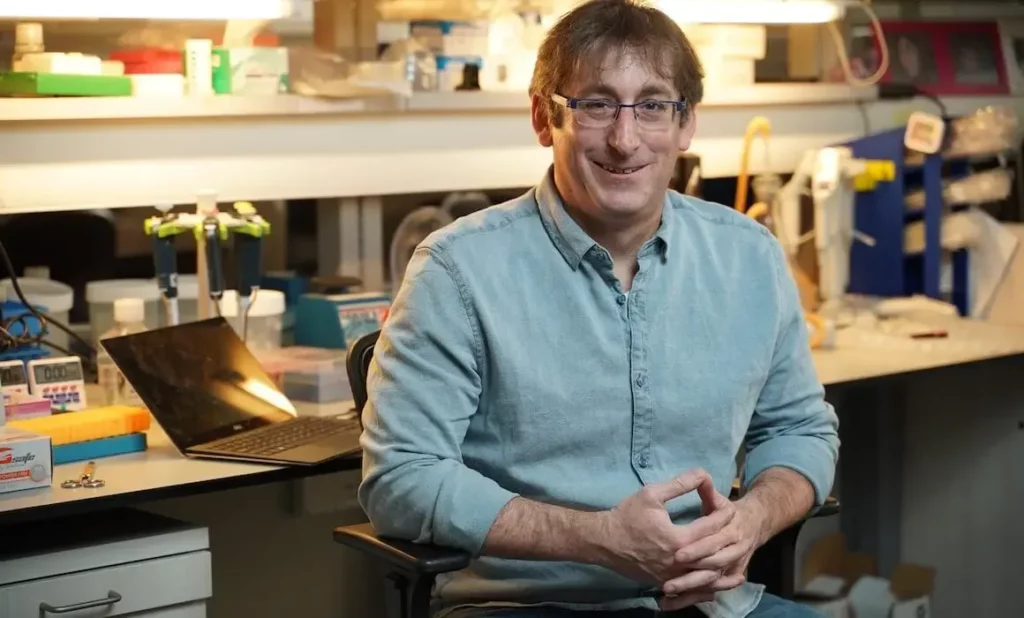
Prof. Shai Shen-Orr of the Ruth and Bruce Rappaport Faculty of Medicine showcased his lab’s trailblazing efforts in harnessing computational tools and innovative methodologies to redefine our understanding of the immune system. A leading immunologist and director of the Zimin Institute of AI Solutions in Healthcare at the Technion and the new Technion Institute for Healthy Aging, his work spans from developing metrics like “immune age” to spearheading global health projects, promising transformative implications for medicine.
Immune Age and Predictive Medicine
One of Prof. Shen-Orr’s standout contributions is the concept of immune age, a metric that quantifies the immune system’s state. This marker has shown predictive power for various health outcomes, including cardiovascular disease, paving the way for early diagnosis and intervention.
“Your immune system is a learning system,” Shen-Orr explained, emphasizing how the immune system evolves over time and adapts to environmental challenges. “By understanding an individual’s immune age, health care providers can better predict and manage potential health issues, leading to more personalized and effective treatments.”
Developed using advanced mass cytometry and machine learning, this metric represents a leap in precision medicine, shifting the focus from general health indicators to immune-specific markers.
Bridging the Data-Insight Gap With AI
Prof. Shen-Orr’s research tackles a critical bottleneck in biomedical science: the gap between vast amounts of data and actionable insights. He has pioneered computational disease models that leverage artificial intelligence to improve drug development efficiency. For example, his lab’s algorithm, “Found in Translation,” enhances the predictability of findings from animal models, like mice, to human systems by up to 50%. “We train the computer system to learn the difference between a mouse and a human,” he said.
“Most drugs fail during development. It costs about $2.5 billion to bring a single drug to market, primarily because of failed trials. By improving the translational accuracy between species, we can reduce time, cost, and animal use significantly.”
The Human Immunome Project: A Global Collaboration
One of his most ambitious initiatives, Shen-Orr is co-chief science officer of the Human Immunome Project. This global nonprofit aims to map baseline immune variations across populations, genders, and geographic regions, addressing a fundamental gap in immunological research. The project holds the potential to revolutionize vaccine development and personalized immunotherapies by understanding how different immune systems respond to treatments.
An example that underscores this need is the malaria vaccine. While it demonstrated over 90% efficacy in trials conducted in the U.S., its effectiveness dropped to less than 20% in African populations, a disparity attributed to baseline immune variations.
“We’re at a singularity moment in immunology,” Shen-Orr said. “The tools to measure the immune system comprehensively, along with AI capabilities, have matured. Now is the time to leverage them for global impact.”
From Academia to Real-World Applications
The Technion’s emphasis on translational research is evident in Shen-Orr’s dual roles as an academic leader and entrepreneur. He co-founded CytoReason, a company that integrates AI-driven disease models into pharmaceutical research and development. The platform has already gained traction with leading industry players like Pfizer and Sanofi, demonstrating its potential to streamline drug development and reduce costs.
Moreover, his collaboration with other Technion researchers is pushing the boundaries of innovation. For instance, partnerships exploring the impact of diet on immune health are underway, aiming to create tailored nutritional solutions for aging populations.
Shen-Orr also advocates for equipping biologists and clinicians with computational and data science skills to harness the explosion of data in immunology. The Technion’s curriculum now incorporates quantitative thinking from the first year of medical school, preparing future physicians to engage with cutting-edge technologies.
Looking Ahead
Prof. Shen-Orr’s work exemplifies the Technion’s commitment to groundbreaking science with tangible societal benefits. By bridging biology, AI, and global collaboration, his research not only advances our understanding of the immune system but also lays the foundation for a future where medicine is predictive, personalized, and precise.
His collaborative efforts with institutions like Stanford University and the National Institutes of Health aim to deepen our understanding of immune health and develop new diagnostic tools and therapies. “We are studying the effects of the environment and pollution on immune health,” for example.
As he puts it, “We’re moving toward a world with less trial and error and more informed decisions in medicine. The immune system, with all its complexity, is the key to unlocking this future.”
From predictive medicine to global health initiatives, Shen-Orr’s work is paving the way for a deeper understanding of the immune system and its applications in improving human health. As the field continues to evolve, the Technion remains at the cutting edge, driving innovation and collaboration in immunology research.
